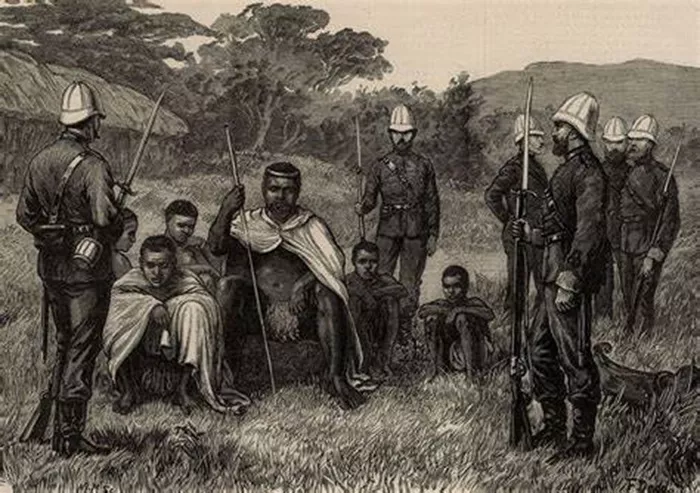January 12 has witnessed numerous significant events in British history, ranging from military conflicts to political milestones. This article will explore various occurrences on this date, providing detailed accounts of each event and its historical context.
What Happened on January 12 in British History?
The Zulu War Begins (1879)
On January 12, 1879, the Zulu War commenced in Southern Africa. This conflict arose from tensions between the British Empire and the Zulu Kingdom, primarily over territorial disputes and British colonial ambitions in the region.
The British had been expanding their influence in Southern Africa, which included annexing the Boer Republics and exerting control over the Cape Colony. The Zulu Kingdom, under King Cetshwayo, was a powerful entity that resisted British encroachment. Tensions escalated when the British issued an ultimatum to the Zulus, demanding disarmament and compliance with British authority.
The war officially began with the Battle of Isandlwana on January 22, 1879, where Zulu forces achieved a surprising victory over British troops. This battle marked a significant moment in military history, showcasing the effectiveness of traditional African warfare against colonial forces. However, subsequent battles, such as Rorke’s Drift and the eventual fall of the Zulu capital at Ulundi later that year, led to the dismantling of Zulu independence and the establishment of British control over Zululand.
The Zulu War had lasting repercussions on British colonial policy and African resistance movements. It highlighted the complexities of imperialism and the consequences of cultural misunderstandings between colonizers and indigenous populations.
The Birth of David Hume (1711)
On January 12, 1711, David Hume, one of Scotland’s most influential philosophers and historians, was born in Edinburgh. Hume’s contributions to philosophy and history have had a profound impact on Western thought.
Hume was born into a moderately wealthy family and received a classical education at Edinburgh University. His early works focused on philosophy but eventually expanded into history with his seminal work, The History of England.
Hume’s History of England, published between 1754 and 1762, covered English history from Julius Caesar’s invasion to the Glorious Revolution of 1688. It was notable for its critical approach to historical narrative and its emphasis on empirical evidence. Hume’s writing style was accessible yet sophisticated, making history engaging for a broader audience.
Hume’s historical methodology laid the groundwork for modern historiography. His skepticism about religious narratives and emphasis on reason influenced both historical inquiry and philosophical thought.
The Establishment of the Wernerian Natural History Society (1808)
On January 12, 1808, the Wernerian Natural History Society was founded in Edinburgh. This organization played a crucial role in promoting scientific inquiry and education in natural history during a time when such disciplines were gaining popularity.
The society aimed to foster interest in geology, mineralogy, and natural sciences among its members and the public. It organized lectures, discussions, and field trips that contributed to the understanding of Scotland’s geological features.
The Wernerian Natural History Society attracted prominent scientists and naturalists of the time. Its activities helped establish Edinburgh as a center for scientific research and education, influencing future generations of scientists.
On January 12, 1918, one of Britain’s worst mining disasters occurred at Hanley, located within the North Staffordshire Coalfield. This tragic event resulted in the deaths of 155 miners due to an explosion caused by firedamp—a mixture of gases found in coal mines.
The explosion occurred during a shift change when miners were entering or exiting the mine. Rescue efforts were hampered by dangerous conditions within the mine itself. The disaster highlighted the perilous nature of coal mining during this period.
In response to this tragedy, there were calls for improved safety regulations within mines across Britain. The disaster prompted legislative changes aimed at enhancing miner safety standards and reducing workplace hazards.
On January 12, 1945, during World War II, the Red Army launched the Vistula-Oder Offensive, a major military campaign against Nazi Germany. This operation marked a significant turning point in the Eastern Front.
The offensive aimed to push German forces back from Poland into Germany itself. By advancing quickly through Eastern Europe, Soviet troops sought to weaken German defenses ahead of further assaults into German territory.
The Vistula-Oder Offensive resulted in substantial territorial gains for Soviet forces. It also contributed to the eventual fall of Berlin later that year. The offensive underscored the shifting balance of power in Europe as Allied forces began closing in on Nazi Germany from multiple fronts.
Conclusion
January 12 has been a date marked by pivotal events in British history across various domains—military conflicts like the Zulu War, significant births like that of David Hume, scientific advancements through institutions like the Wernerian Natural History Society, tragic industrial accidents such as the North Staffordshire Coalfield disaster, and critical military operations during World War II like the Vistula-Oder Offensive. Each event not only shaped its immediate context but also had lasting effects on society and culture in Britain and beyond.
Related Topics:

